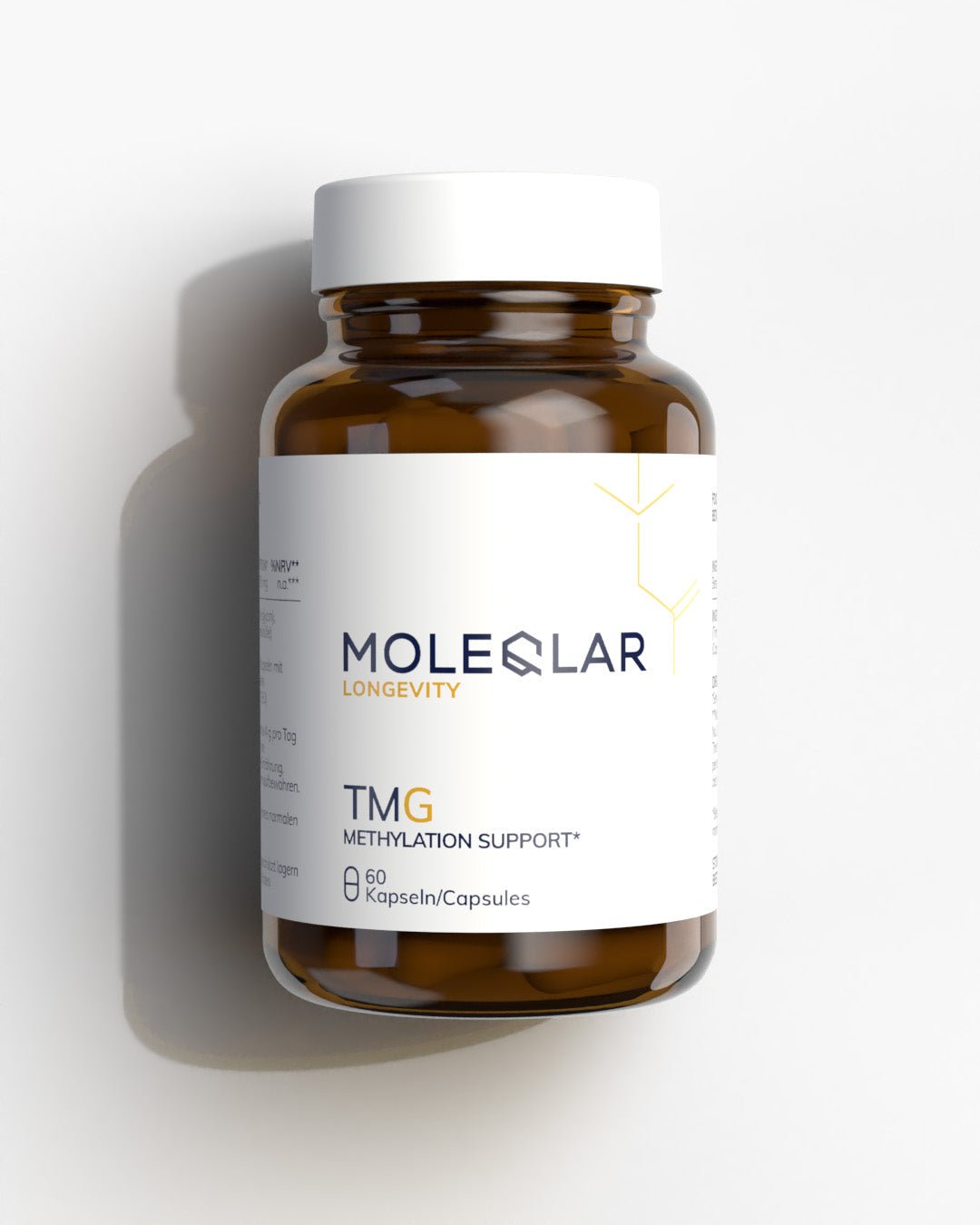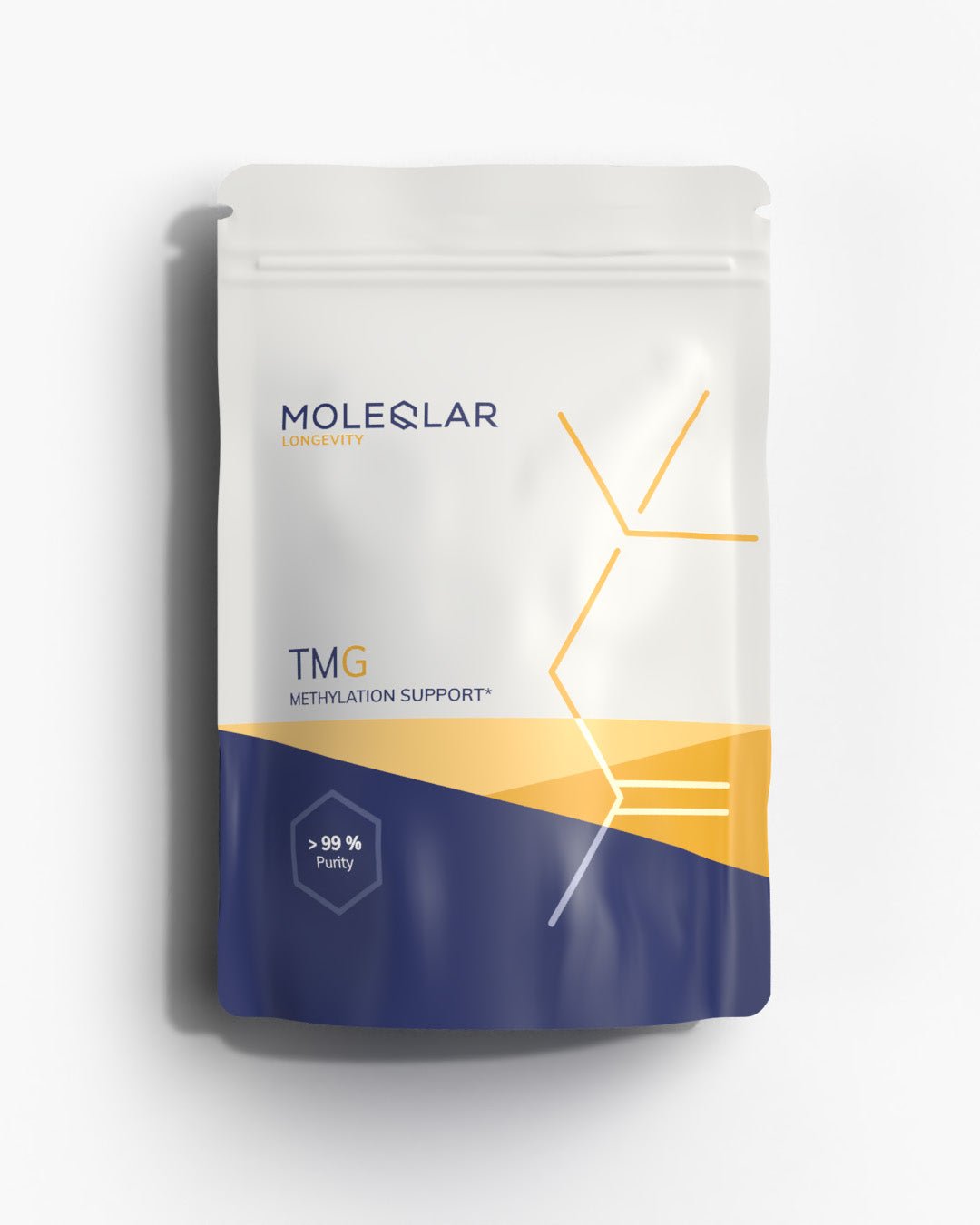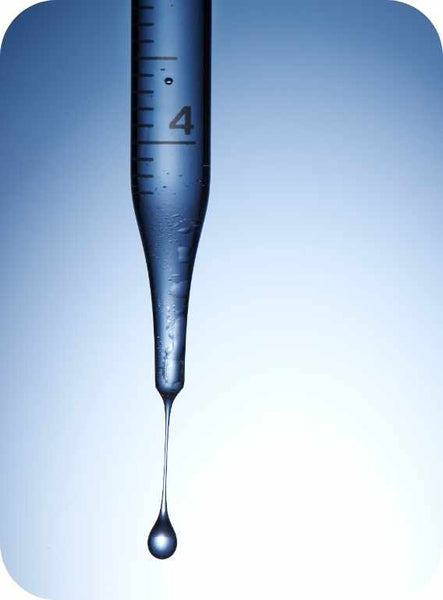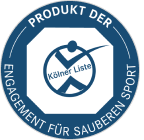




Betaine (TMG) capsules
- 60 capsules of pure betaine Powder (trimethylglycine/TMG)
- One jar of betaine (60 capsules) equals a 30-day supply (One serving = 2 capsules)
- 100% vegan, 100% GMO-free, purity certified in German laboratories
-
 Capsules
Capsules
-
 Powder
Powder
Jetzt Mengenrabatt sichern!
€17,90
€51,03 €53,70
€96,66 €107,40
€182,64 €214,80
- Flexibel: Für jeden etwas dabei
- Sparen: Mehr kaufen, mehr sparen
Jetzt im Abonnement Sparen!
€16,11€17,90
- Ansteigende Rabatte: 15% ab der 3. Verlängerung, 20% ab der 6. Verlängerung, 25% ab der 12. Verlängerung
- Self-Service: Jederzeit kündbar. Menge oder Frequenz ändern? Ebenfalls kein Problem!
Lieferfrequenz:
The MOLEQLAR "Clean Product & Label" philosophy ensures that every product reaches you in top quality. Every single batch undergoes a comprehensive and product-specific purity and residue analysis (heavy metals, microbiology, pesticides).
Shipping
Delivery within 1-4 working days in DE and AT. Orders placed after 12 noon will not be processed until the next working day.
You can find more information on the page for shipping information.
Quality assurance
At MOLEQLAR, we place the highest value on transparency with regard to the quality of our products. Every single product undergoes rigorous testing both by our manufacturer and by independent laboratories in Germany.
Click on this linkto go directly to the certificates.
Recommended intake
Everything at a glance
Everything at a glance
What is betaine (TMG)
Function
Application
Ingredients
Certificates
Outstanding quality standards
Finest betaine in capsule form
100% vegan, 100% GMO-free and certified with high purity in independent German laboratories.
Betaine capsules from MOLEQLAR

Spinach is a natural source of betaine

The difference.
Quality, transparency and scientific responsibility are non-negotiable for us.


Independent laboratory analysis
Purity of the ingredients
Transparency for raw materials
Scientific background
Improved bioavailability



Betaine capsules facts

Frequently asked questions (FAQs)
Was sind Anzeichen für einen hohen Homocystein-Spiegel im Körper?
Ein hoher Homocysteinspiegel im Körper, auch Hyperhomocysteinämie genannt, kann ein Risikofaktor für verschiedene Gesundheitsprobleme sein. Einige mögliche Anzeichen für einen hohen Homocysteinspiegel im Körper sind:
- Herz-Kreislauferkrankungen: Ein hoher Homocysteinspiegel im Blut erhöht das Risiko von Herz-Kreislauferkrankungen, wie Herzinfarkt, Schlaganfall und periphere arterielle Verschlusskrankheit.
- Gefäßschäden: Homocystein kann die Gefäße schädigen und zu arteriosklerotischen Veränderungen führen, wie z.B. Ablagerungen von Fett und Kalzium in den Arterien.
- Nierenschäden: Ein hoher Homocysteinspiegel kann die Nieren schädigen und das Risiko von Nierenerkrankungen erhöhen.
- Osteoporose: Homocystein kann die Knochen schwächen und das Risiko von Osteoporose erhöhen.
- Gedächtnisstörungen und Demenz: Ein hoher Homocysteinspiegel kann das Risiko von Gedächtnisstörungen und Demenz erhöhen.
Es ist wichtig zu betonen, dass ein hoher Homocysteinspiegel nicht unbedingt Symptome verursachen muss. Ebenfalls sollte eine regelmäßige Kontrolle des Homocysteinspiegel im Blut erfolgen, besonders wenn Risikofaktoren wie Rauchen, Alkoholkonsum, Hypercholesterinämie, Hypertonie oder Diabetes vorliegen. Ein Arzt kann einen Homocysteinspiegel im Blut durch eine Blutprobe bestimmen und falls nötig entsprechende Maßnahmen ergreifen.
Wie sollte ich Betain (TMG) richtig einnehmen?
Bei Betain (TMG) handelt sich um ein wasserlösliches Molekül. Es sollte daher mit viel Flüssigkeit, bestenfalls einem Glas Wasser, eingenommen werden. Prinzipiell wird Betain (TMG) äußerst gut in den Körper aufgenommen und hat eine hohe Bioverfügbarkeit.
Bitte nicht die empfohlene Dosierung überschreiten. Beim Auftreten von möglichen unerwünschten Nebenwirkungen, kontaktiere medizinisches Fachpersonal.
Wie lange ist mein Einkauf haltbar?
Prinzipiell kann man von einer Haltbarkeit von ungefähr zwei Jahren ausgehen. Diese Angabe dient lediglich als Richtwert, kann demnach variieren und ist ohne Gewähr. Das genaue Mindesthaltbarkeitsdatum deines Einkaufs findest du auf der Rückseite bzw. dem Boden der Betain (TMG)-Dose oder der Verpackung notiert.
Wie sollte ich Betain lagern?
Das Molekül Betain sollte am besten kühl und trocken gelagert werden. Auch aus direktem Sonnenlicht und von Hitze fern halten. Bitte außerhalb der Reichweite von Kindern aufbewahren.



















































